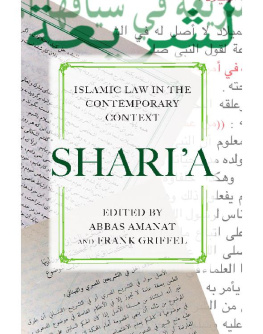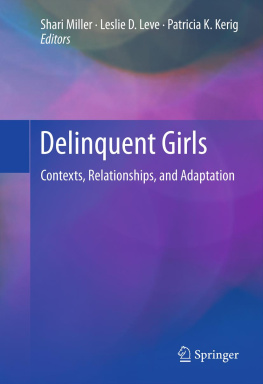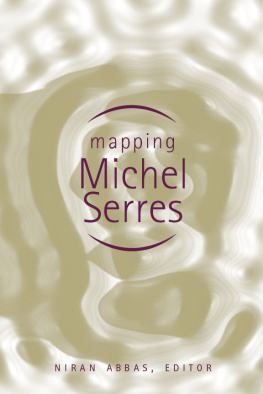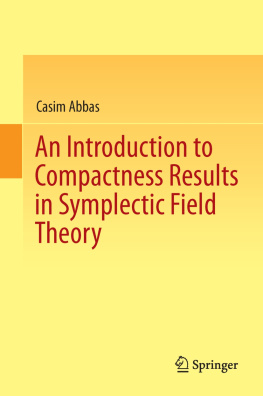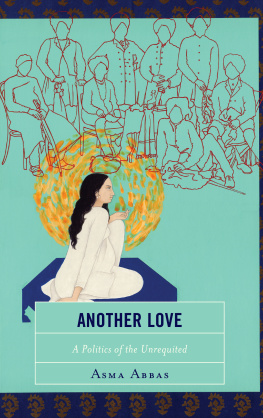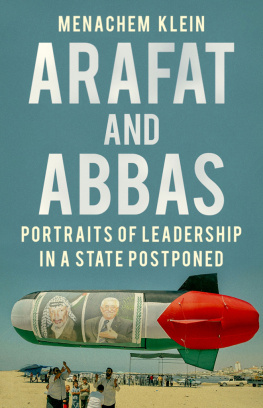Abbas Amanat - Shari’a
Here you can read online Abbas Amanat - Shari’a full text of the book (entire story) in english for free. Download pdf and epub, get meaning, cover and reviews about this ebook. year: 2007, publisher: Stanford University Press, genre: Religion. Description of the work, (preface) as well as reviews are available. Best literature library LitArk.com created for fans of good reading and offers a wide selection of genres:
Romance novel
Science fiction
Adventure
Detective
Science
History
Home and family
Prose
Art
Politics
Computer
Non-fiction
Religion
Business
Children
Humor
Choose a favorite category and find really read worthwhile books. Enjoy immersion in the world of imagination, feel the emotions of the characters or learn something new for yourself, make an fascinating discovery.
- Book:Shari’a
- Author:
- Publisher:Stanford University Press
- Genre:
- Year:2007
- Rating:5 / 5
- Favourites:Add to favourites
- Your mark:
- 100
- 1
- 2
- 3
- 4
- 5
Shari’a: summary, description and annotation
We offer to read an annotation, description, summary or preface (depends on what the author of the book "Shari’a" wrote himself). If you haven't found the necessary information about the book — write in the comments, we will try to find it.
Shari’a — read online for free the complete book (whole text) full work
Below is the text of the book, divided by pages. System saving the place of the last page read, allows you to conveniently read the book "Shari’a" online for free, without having to search again every time where you left off. Put a bookmark, and you can go to the page where you finished reading at any time.
Font size:
Interval:
Bookmark:
Sharia
Islamic Law in the Contemporary Context
Abbas Amanat
Frank Griffel
Stanford University Press
Stanford, California
2007 by the Board of Trustees of the Leland Stanford Junior University. All rights reserved.
No part of this book may be reproduced or transmitted in any form or by any means, electronic or mechanical, including photocopying and recording, or in any information storage or retrieval system without the prior written permission of Stanford University Press.
Printed in the United States of America on acid-free, archival-quality paper
Library of Congress Cataloging-in-Publication Data
Sharia : Islamic law in the contemporary context / edited by Abbas Amanat and Frank Griffel.
p. cm.
Includes bibliographical references and index.
9780804779531
1. Islamic lawInterpretation and construction. I. Amanat, Abbas. II. Griffel, Frank.
KBP440.3.S53 2007
340.59dc22 2007014097
Typeset by Binghamton Valley Composition in Minion, 10/14
Table of Contents
PREFACE
THE IDEA OF THIS BOOK first came to us in response to public debates in recent years about Islamic law and its relevance in our time, especially how the different positions in Islamic law respond to such issues as civil liberties, gender, ethnic and religious diversity, toleration and violence, freedom of expression, and the relationship between the sacred and the secular. The chapters in this volume address the role and the status of Islamic law (Sharia) not only in Muslim societies, where it is partly incorporated into the civil and penal codes, but in a broader context of our time and in reference to issues of modernity. Despite its great importance for modern Muslim thought and for current international turmoil, contemporary Sharia has rarely been covered in depth in the literature.
In recent years Western attention has turned to debates among Muslims on what Islam forbids, allows, or advocates. Moreover, it has brought into focus the problem of authority and representation: who is qualified to interpret the law, form opinions, and issue judgments. These discussions center largely on the content, applicability, and implementation of Islamic law. One can argue that the failure of many modern Muslim nation-states to live up to their initial promises led to a widespread debate on the need for a return to Sharia as an idealized system whose application has yet to be fully realized. Muslim fundamentalists in particular claim that Sharia and its sources, the Quran and the adth , constitute a divine law that regulates all aspects of Muslim life, as well as Muslim societies and Muslim states, in the most perfect and everlasting way. Muslim modernists, a far less audible voice these days, on the other hand, criticize the old approaches to Sharia by traditional Muslim jurists as obsolete and instead advocate innovative approaches to Sharia that accommodate more pluralist and relativist views within a democratic framework. Moreover, multiple sources of judicial authority in the Muslim world pose obstacles to the formulation of Sharia as a normative system and contribute to ambiguities concerning the meaning and usage of Islamic law. Sharia: Islamic Law in the Contemporary Context addresses these implications and ambiguities, the current application of Sharia, and the potential of developing into a modern legal system and, alternatively, the obstacles it poses as a barrier to Muslim modernity.
As co-organizers of the workshop in February 2003 on the theme of this volume, sponsored by the Council on Middle East Studies at the Yale Center for International and Area Studies (now the Whitney and Betty MacMillan Center for International and Area Studies at Yale), and as coeditors of this volume, we would like to thank the centers staff and particularly its anonymous donor for making the workshop possible that led to this publication. We also thank the other participants in the workshop and our students and colleagues at Yale for their contributions during the workshop. Special thanks go to Tanya Wiedeking, Fiona Ford, and the editorial staff at Stanford University Press for their help in improving chapters of this book.
Abbas Amanat, Frank Griffel New Haven, December 2006
INTRODUCTION
Frank Griffel
WHEN MUSLIMS DISCUSS the ethical imperatives of their faith regarding contemporary moral issues such as abortion, stem-cell research, or the treatment of racial or religious minorities, they will at one point consider what Sharia says about these questions. All normative discussions within Islam, as well as between Muslims and members of other faiths, center on the content of Sharia, a concept that can be roughly translated as Islamic religious law. What many Muslims regard as being determined by Sharia, however, includes much that modern Westerners would not recognize as law. Handbooks on Sharia have been in circulation since the ninth century and are still widely used by Muslim scholars today. A traditional handbook of Sharia starts with acts of worship (Arabic ibdt ), for example, the five daily prayers and the ritual purity required to perform prayers, the month of fasting, or the alms tax. Next the manuals move to issues concerning human relationships ( mumalt ), such as marriage, divorce, inheritance, commerce, taxation, and war. These the modern Westerner might easily recognize as legal issues. However, Sharia goes beyond what in the West would be considered legal discourse, for it extends to matters concerning proprieties of clothing, conduct between spouses, filial piety, behavior at funerals, and other questions that Westerners would treat not as legal, but as moral issues or mere etiquette. At the same time, Sharia also provides answers to the most vital moral questions of the contemporary world, such as the legitimacy of violence or torture, just war, suicide and self-sacrifice, or the means of combating injustice.
Over the centuries of Muslim history a vast amount of literature has been generated discussing these normative questions. The first impression one gets from looking at this library is that of continuity and congruency. Legal authorities from many different centuries of Muslim history are quoted to determine the response of Sharia to todays moral questions. When asked about the notion of just war between nations and the rules for conducting warfare, for instance, contemporary Muslim scholars often refer to one of the earliest treatments of this matter, that of the jurist al-Shaybn (d. 805). Al-Ghazl, who was also one of the foremost authorities on legal theory in Islam, understood Sharia as human efforts to derive congruent rules and norms from divine sources. He stressed that although the sources of Sharia are divine and go back to a revealed text, the establishment of Sharia is a distinctly human enterprise that requires its own kind of scholarship. During the course of its development this understanding changed, and by the twentieth century the meaning of the term Sharia had been subtly but fundamentally transformed. Contemporary Sharia is in many ways different from what classical scholars such as al-Ghazl had in mind. This collection of essays is devoted to a further understanding of what Sharia means in the contemporary context.
SHARIA IN THE CLASSICAL MUSLIM PERIOD
Islamic religious law is at best only an approximate translation of the term Sharia . The origin of this word is Arabic, yet today it appears in all languages used by Muslims, including English. These shifts of meaning are not always clear. What is important is that within Muslim discourse the word Sharia came to designate the rules and regulations that govern the lives of Muslims.
Once it became clear that Islam had its own ritual duties and rules for human actions, these regulations needed to be identified. The academic discipline whereby Muslim scholars describe and explore Sharia is called fiqh , Islamic jurisprudence. Doing fiqh is a human activity and cannot be ascribed to God or to His prophets, although revelation and prophetic insights are, in fact, the sources from which the Muslim scholar who does fiqh the faqih or Muslim jurisprudenttakes his clues. The discipline of fiqh arose in the early days of Islam, during the eighth century or probably even earlier .
Next pageFont size:
Interval:
Bookmark:
Similar books «Shari’a»
Look at similar books to Shari’a. We have selected literature similar in name and meaning in the hope of providing readers with more options to find new, interesting, not yet read works.
Discussion, reviews of the book Shari’a and just readers' own opinions. Leave your comments, write what you think about the work, its meaning or the main characters. Specify what exactly you liked and what you didn't like, and why you think so.

